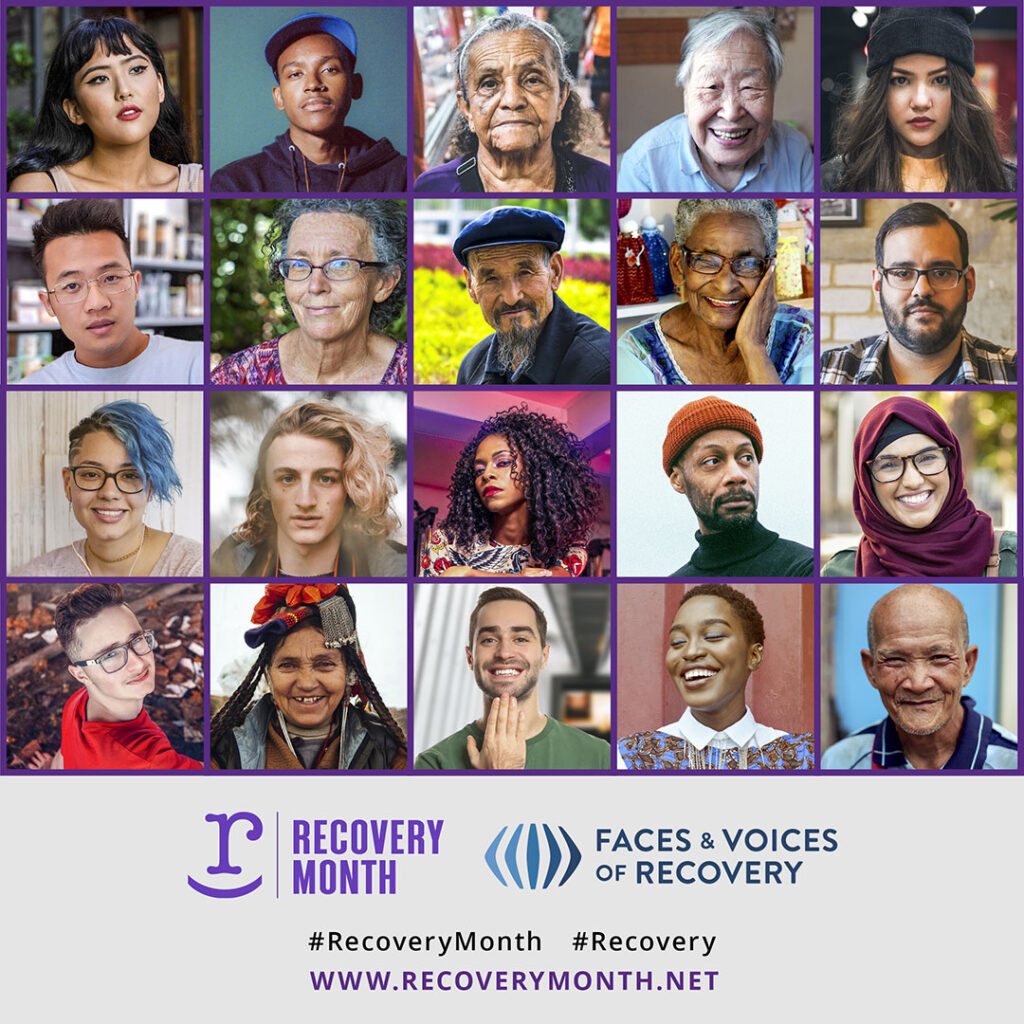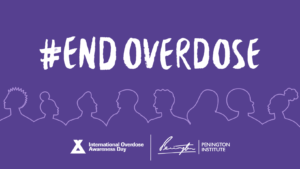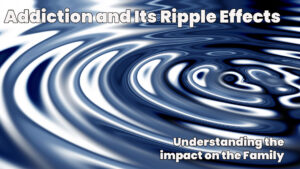September is National Recovery Month
Recovery is for everyone because it benefits everyone. In recovery, we build new connections to ourselves, our families, and our communities. The Recovery Month tagline, “Recovery is for Everyone: Every Person, Every Family, Every Community”, reminds people in recovery and those who support them that recovery belongs to all of us. We are all called to end gatekeeping and welcome everyone to recovery by lowering barriers to recovery support, creating inclusive spaces and programs, and broadening our understanding of what recovery means for people with different experiences.
“I encourage you as a peer, ally, and community member to attend a recovery event at your local Recovery Community Organization this month,” said Sara Powell, the Recovery Program Specialist overseeing the state’s Peer Recovery Support Services contract for the Department of Health and Human Services’ Division for Behavioral Health, adding, “[it’s vital to ] recognize the milestones and achievements for individuals and loved ones, and in celebration of life in recovery.”
While it may be tempting to characterize recovery as a universal experience or single journey, our community is proof that there are as many pathways to and of recovery as there are people. Our strength is our diversity and because of who we are, the recovery community has unique opportunities to learn, challenge, grow, and dream. By expanding traditional, limited conceptions of recovery, which center white, heterosexual, cisgender, religious, wealthy perspectives, we enrich everyone’s experience. Mental health and substance use disorder are not one-size-fit all conditions, nor do they affect everyone equally. Culturally competent multilingual resources and gender-expansive programs acknowledge and include LGBTQIA2S+ (Lesbian, Gay, Bisexual, Transgender, Queer and/or Questioning, Intersex, Asexual, Two-Spirit, and the countless affirmative ways in which people choose to self-identify), BIPOC (Black, Indigenous, and people of color), and other historically marginalized community members.
Looking beyond our individual experiences strengthens and supports recovery in all its forms. The recovery community has a powerful foundation of mutual aid, peer support, and adaptability. As we grow in empathy and understanding, we save lives by adding protective factors and building resiliency. We honor the incredible contributions from communities within recovery as groups connect and implement resources that serve their unique needs. The powerful bonds built in recovery are life-altering. To honor those bonds, in every form they take, is a significant factor in sustaining recovery as well as building bridges between our communities. When we connect with open minds and hearts, we learn from one another and create life-saving opportunities.
To heal ourselves, our communities must also heal. Recovery Research Institute conducted a nuanced, five-year study that explored the ways in which substance use disorder impacted families, communities, and cultures, and how recovery in those spaces created opportunities to rebuild. The study affirmed that people in distressed communities need opportunities to share their experiences, therefore, personal recovery can translate into collaborative recovery when the individual begins to see their story as part of a larger story. The shift from “I” to “we” is transformative. We call to nurture this “we.” We find new ways of connecting the recovery community. We call to rejuvenate struggling communities and families. At the same time, we work to empower communities who grapple with inequitable conditions, including the effects of systemic racism, homophobia, transphobia, generational poverty, adverse childhood experiences, and other forces. Social connections, family support, and neighborhood relationships are directly linked to wellness and recovery. We must ensure that everyone has the same chance at recovery. Our “I” must become our “we.”
Recovery Month educates others about recovery from mental health, substance use, and co-occurring disorders, the effectiveness of treatment and recovery support services, and that recovery is possible. All of us, from celebrities and sports figures to our co-workers, neighbors, friends, and family members, throughout our lives have experienced peaks and valleys, both big and small. And, with strength, support and hope from the people we love, we are resilient.
The focus areas of Recovery Month materials include the impact of communities, families, and social groups on the prevalence and recovery of mental health, substance use, and co-occurring disorders. The Recovery Month messaging emphasizes the importance of inclusive programs, language, and treatment that lower barriers to recovery for everyone; by challenging traditional structures, we create the foundation that so many people need for their recovery journey.
By asserting that “Recovery is for Everyone,” we reduce the stigma surrounding people with substance use or mental health disorders, especially when complicated by oppressive forces like white supremacy, systemic racism, punitive criminal justice systems, and policy that excludes less privileged people. Recovery is always person-first. “Meeting people where they are at” translates into acknowledging their unique experiences and needs, including people of different cultures, identities, backgrounds, and communities.




